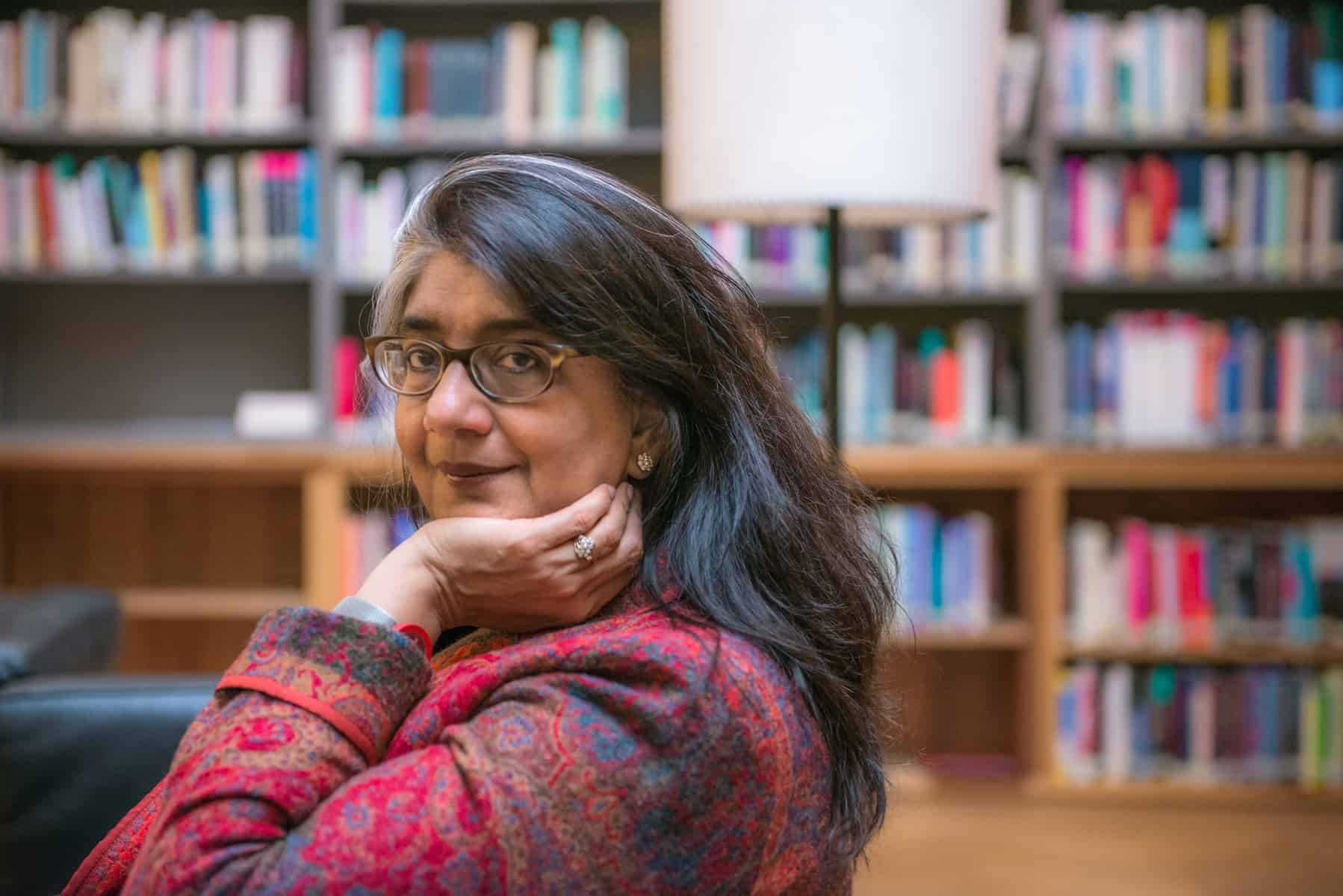Shalini Randeria, a sociologist and social anthropologist focused on legal pluralism and global inequalities, is the Rector of the Institute for Human Sciences (IWM) in Vienna and an IIASA Distinguished Visiting Fellow. On 9 March, she gave a keynote lecture in Vienna entitled, “Precarious livelihoods, disposable lives, and struggles for citizenship rights,” as part of the IIASA-Austrian Academy of Sciences public event, Human Capital, Geopolitical Complexities, and our Sustainable Future.
Q. Why do you say that globalization is full of contradictions?
A. We are living in paradoxical times. The global spread of democracy has gone hand in hand with the erosion of its substance. Decisions once made by national parliaments are now made by supranational institutions, reducing the say of citizens in public decision-making. As people feel disenfranchised, trust in our governments fades. Sometimes going to court seems to be the only way to make governments accountable to citizens. This development not only expands the power of the judiciary but also politicizes it.
What role does globalization play in the inequality between Global North and Global South?
Neo-liberal economic restructuring has increased inequalities between countries but also within each society. We are witness today to an unprecedented concentration of income and wealth, which is not an unforeseen consequence of economic globalization but the result of deliberate public policies. The global South, however, is no longer a geographical category. Greece is an example of European country dependent on international finance institutions in much the same way that once so-called developing countries were.

Shalini Randeria © IWM / Dejan Petrovic.
You say that economic and political processes render some lives disposable – what do you mean by that?
Take India for instance: since the country’s independence in 1947, every year some 500,000 people—mostly small farmers, agricultural workers, fishing and forest-dwelling communities —have been forcibly displaced to make room for gigantic infrastructure projects. They have become development refugees in their own country. These people are regarded as ‘dispensable’ by the state in the sense that their livelihoods are destroyed, their lives disrupted, and they are denied access to common property resources. These populations are the human waste that is sacrificed at the altar of an unsustainable model of incessant economic growth.
The Sustainable Development Goals (SDGs), adopted last year, include aims to end poverty, ensure access to employment, energy, water, and reduce inequality, at the same time as preserving the environment. What challenges do you see for achieving these goals?
The SDGs will prove to be an important milestone, if they are implemented the world over. Some of these goals are in conflict with one another. Take the protection of biodiversity, for example, which is often constructed as an antagonistic relationship between society and nature In the new global regime of biodiversity consveration, nature is portrayed as self-regulating, as a pristine, uninhabited wilderness that is threatened due to the wasteful resource use by local populations. Thus access and traditional usufruct rights are curtailed, and indigenous knowledge is devalued and marginalized. The (post)colonial transformation of landscapes into “environment,” “natural resources,” and “biodiversity” has enclosed the commons in most regions of the global South and often commercialized them.
The idea of the Global Commons as spaces and resources that all have access to and also have the responsibility to protect is a useful one in this context. The oceans are but one example of the global commons that include water, forests, or air, which are all being increasingly privatized. The Global Commons also include common resources developed by humans such as virtual data, knowledge, computer software, and medication..
What needs to be done by international institutions to make significant progress in achieving the SDGs?
Eliminating poverty will need an understanding of it that goes beyond a merely economic one. One will need to take into account possibilities of democratic participation, access to public goods and infrastructure, as well as civil rights and a restoration of a plurality of livelihoods. But these institutions also need to be reformed as they have a serious democracy deficit, be it the EU or the Bretton Woods institutions. Unaccountability of international institutions and powerful corporations along with stark asymmetries of power between these and the nation-states characterizes the new architecture of global governance, which need to be remedied urgently if we are to realize global justice.
Note: This article gives the views of the interviewee, and not the position of the Nexus blog, nor of the International Institute for Applied Systems Analysis.

You must be logged in to post a comment.